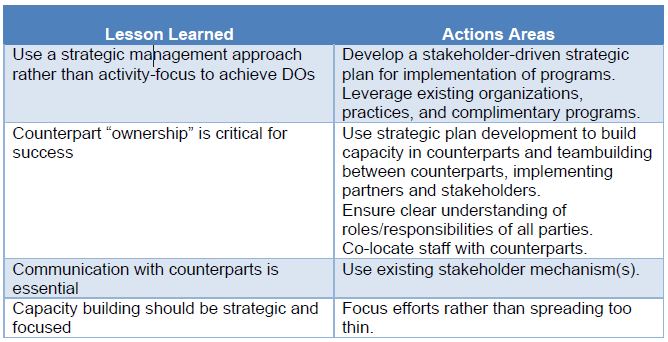From October 2010 to Octover 2014, Winrock International received $21.9 million from USAID to implement the Liberia Energy Sector Support Program (LESSP). The aim of this four‐year program was to increase access to affordable renewable energy services to foster economic, political and social development. Specifically, the aims were
- Improved performance of local governments, civil society and the private sector in monitoring, regulating and managing the use of renewable energy
- An increase in the percentage of households and businesses utilizing clean energy, and a corresponding increase in economic activity
- Policy changes that improve the investment climate for the energy sector
Planned and implemented activities
The final evaluation report of the proram concluded that at time of LESSP’s closure most activities were incomplete.
- Only few people at RREA had received capacity building.
- GOL officials participated in an international policy and regulation study tour
- the Energy Regulatory Board (ERB) does not legally exist in Liberia.
- Capacity building initiatives were adversely impacted by the Ebola crisis, and activities planned for 2014 were canceled.
- There was no increase in the percentage of households and business utilizing clean energy.
- No evidence that LESSP’s assistance in the policy reform arena resulted in improvements to the investment climate.
It was planned to establish four pilot projcts using renewable energies to generate power in rural areas. Two of the original pilot projects were removed from the contract, and replaced with new projects in different locations, and with a completely different scope of work and technical specifications.
- MeinRiver, Suakoko, Bong: hydroelectric system. The project was not completed and is currently re-planned.
- Sorlumba, Lofa: palm oil powered mini-grid. The projct was not completed within the time frame, but afterwards continued and became operational in 2016. However, the communities are less willing or able to pay than anticipated.
- Kwendin: rubber wood chips powered mini-grid. The project was not completed within the time frame, but afterwards continued and became operational in December 2016. Payments for the electricity are a challenge.
- Gbarnway: solar home systems for all houses in the community. A cooperative was to collect monthly fees to ensure maintenance and repair, but money collection proves to be difficult.
Recommendations for future programs
The evaluation report of the project summarizes lessons learned to improve reaching Development objectives (DOs).

Some of their recommendations for future projects are the following:
-
Take into account the limited local resources, lack of pertinent quality data and logistical challenges as well as lessons learned.
- Be flexible in the design to allow the implementing partner to achieve the objectives the best way possible by employing tools including value engineering/value analysis in the case of engineering/construction projects.
- Be focused (with attendant performance monitoring and evaluation) instead of trying to accomplish too many initiatives at the same time.
- Project objectives should be in line with national policy and development goals.
- Engage stakeholders early in the planning and development process and seek local champions to take ownership of the project to facilitate sustainability.
- Reaffirm the validity of development objectives to facilitate ownership.
- Improve stakeholder partnerships
- Make capacity building performance‐based and strengthen M&E
- of training activities
- Develop construction oversight and implementation monitoring
- Control construction costs
- Institute performance‐based contracting (PBC) with provisions for incentives.
- Evaluate and examine project fast tracking and crashing the construction schedule
- Re‐evaluate the financial analysis including identifying options through sensitivity analysis
- Provide capacity building in all facets of managing pilot mini grids
- Develop an energy knowledge database and knowledge‐sharing platform
